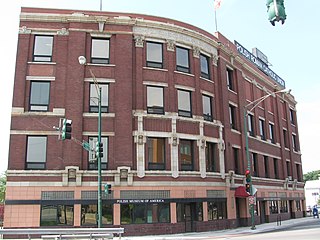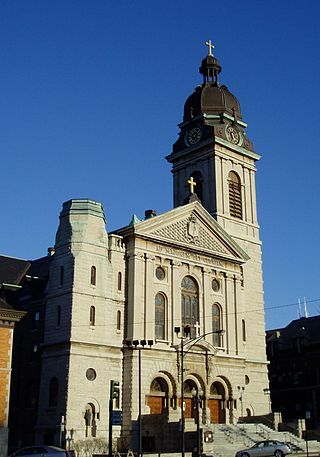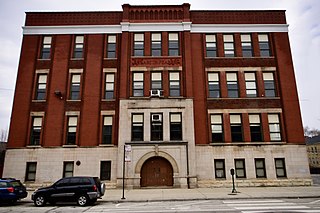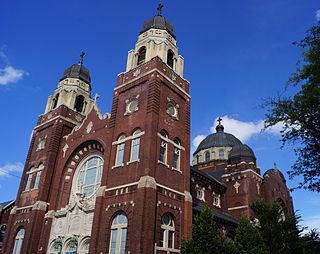Self-guided Sightseeing Tour #18 in Chicago, United States
Legend
Tour Facts
2.3 km
22 m
Experience Chicago in United States in a whole new way with our free self-guided sightseeing tour. This site not only offers you practical information and insider tips, but also a rich variety of activities and sights you shouldn't miss. Whether you love art and culture, want to explore historical sites or simply want to experience the vibrant atmosphere of a lively city - you'll find everything you need for your personal adventure here.
Activities in ChicagoIndividual Sights in ChicagoSight 1: Saint John Cantius Roman Catholic Church
Saint John Cantius Church is a Latin Catholic church of the Archdiocese of Chicago.
Sight 2: Intuit: The Center for Intuitive and Outsider Art
Intuit: The Center for Intuitive and Outsider Art, also known as the Intuit Art Center or just Intuit, is a museum in the West Town neighborhood of Chicago dedicated to outsider art. Founded in 1991, the museum offers exhibitions and educational programming exploring contemporary self-taught art.
Wikipedia: Intuit: The Center for Intuitive and Outsider Art (EN), Website
Sight 3: Polish Museum of America

The Polish Museum of America is located in West Town, in what had been the historical Polish Downtown neighborhood of Chicago. It is home to numerous Polish artifacts, artwork, and embroidered folk costumes in its growing collection. Founded in 1935, it is one of the oldest ethnic museums in the United States and a Core Member of the Chicago Cultural Alliance, a consortium of 25 ethnic museums and cultural centers in Chicago.
Sight 4: Peabody School Apartments
The Elizabeth Peabody School is a historic school building at 1444 W. Augusta Boulevard in the West Town neighborhood of Chicago, Illinois. The school opened in 1894 to serve the growing number of students in West Town, as immigration and changes to education laws had led to overcrowding at other neighborhood schools. W. August Fiedler, the chief architect of the Chicago Board of Education, designed the school. His design, one of his first after becoming chief architect, combines the utilitarian form of standardized Chicago school designs of the 1870s with elements of the Queen Anne and Richardsonian Romanesque styles. The school served students continuously from its opening until it closed in 2013.
Sight 5: Holy Innocents Catholic Church
Holy Innocents Church,, is a church of the Roman Catholic Archdiocese of Chicago located at 743 North Armour Street in the East Village neighborhood of Chicago, Illinois. It is a prime example of the so-called "Polish Cathedral style" of churches in both its opulence and grand scale.
Share
How likely are you to recommend us?
Disclaimer Please be aware of your surroundings and do not enter private property. We are not liable for any damages that occur during the tours.
GPX-Download For navigation apps and GPS devices you can download the tour as a GPX file.


